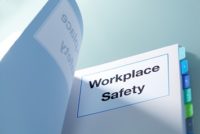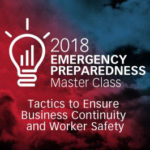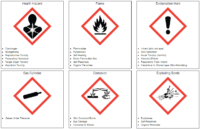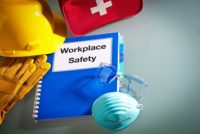Category: Training
Training is the number one element in accident, incident, and illness avoidance. Check the articles here frequently for the latest and best tips on techniques, trends, programs and equipment. We offer explanations for group, one-one, or self-directed situations, in both general and specific work activities. Your training will be both easier and more effective if you do.
Employers in the construction, manufacturing, food and beverage, and agricultural sectors, among many others, are well aware of the barriers that language differences present to communicating accurate and complete safety information to workers. Signs that use icons instead of language can, to a limited degree, help get critical information across. Another method is film.
The impact of safety training on your overall cultural efforts is enormous. But how can you implement training that will engage your employees, and what common mistakes must you avoid? The EHS Daily Advisor gets some tips from Thomas E. (Ted) Boyce, Ph.D., a learning expert and a speaker at the upcoming Safety Culture 2018 […]
Microlearning. More and more organizations want it, some thinking it’s a way to condense or shorten the time it takes to train workers. Or is it just another buzzword to sell products and services to companies that want a change in the way they train?
Are you being asked to measure the competency of your workers either before or after they have been trained to perform their tasks safely and correctly? What is the impact of learning on your workers? Do you know where to start, and how to make it repeatable?
When it comes to emergencies, you might ask yourself, how can I possibly prepare all of my employees for all possible disasters that can arise? Training for every conceivable emergency can seem daunting. How are you supposed to know what to train and at what frequency? Planning An emergency in the workplace is any situation […]
The Hazard Communication Standard (HCS) requires pictograms on labels to alert users of the chemical hazards to which they may be exposed. Each pictogram consists of a symbol on a white background framed within a red border and represents a distinct hazard(s). The pictogram on the label is determined by the chemical hazard classification.
Hóa chất độc hại; químico peligroso; खतरनाक रसायन. Would you be able to read a safety data sheet (SDS) in Vietnamese? Spanish? Nepali? Yet, environment, health, and safety (EHS) managers are required to maintain SDSs only in English. But, there is a hitch.
Workers who have been through the Occupational Safety and Health Administration’s (OSHA) 10-hour and 30-hour Outreach Training courses get course completion cards—but the courses don’t fulfill the training requirements of any specific OSHA standard. Does that mean you shouldn’t bother with it?
If you’re putting together a basketball team, you’re probably going to look for players who’ve mastered the fundamentals of dribbling, passing, shooting, and defense. Players who haven’t mastered the fundamentals aren’t going to have an easy time executing more advanced game play strategies or skills, like a pick-and-roll or an alley-oop slam.
When you measure the success of your health and safety program, you probably look at indicators like accident rates, training participation, and workers’ compensation modifiers. All of these are good measures of how well your program is addressing workplace hazards. But the impact of a strong workplace health and safety program goes beyond your own […]









